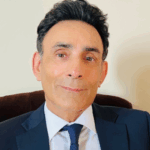OCD and Addiction: Risks, Symptoms, and Treatment
OCD and addiction can have severe impacts on a person’s social, economic, and personal well-being. Maintaining a healthy routine can be complicated by obsessive-compulsive disorder (OCD) making it difficult to focus on anything other than the recurrent and unwanted thoughts and actions associated with the condition.
Properly addressing the condition and its symptoms helps to alleviate these symptoms, providing relief. However, self-medicating with substances can lead to dependence and addiction.
What is OCD?
Obsessive-compulsive disorder is one of the most common mental health conditions in the United States. It is characterized by persistent intrusive thoughts (obsessions) and repetitive mental or behavioral acts (compulsions). Individuals struggling with this condition feel compelled to act on their thoughts and behaviors to avoid feelings of discomfort and anxiety.
Common fears associated with the obsessions include fear of contamination, doubts about safety and potential harm, and a need for order or symmetry. In response to these obsessions, an individual may overwash their hands, or continuously and repetitively organize things to reduce anxiety and stress.
OCD and Addiction: A Dual Diagnosis
OCD and addiction can coexist in an individual, this is known as dual diagnosis. Both are individual conditions with their own symptoms and treatment protocols. However, these conditions can exist simultaneously within an individual and share overlapping features.
Oftentimes, people turn to drugs and alcohol as a means of coping with the symptoms of obsessive-compulsive disorder. With continued use, they could begin to develop tolerance and dependence, resulting in addiction and withdrawal symptoms.
On the other hand, struggling with substance abuse and addiction can result in symptoms of OCD manifesting or becoming more prevalent. Either way, professional care and properly addressing both conditions are vital to overcoming them.
Risk Factors for OCD and Addiction
Different factors play a role in someone’s susceptibility to developing OCD and addiction. These can include a family history of either condition or chemical imbalances in the brain. Traumatic experiences or stressful events can also be contributing factors.
Early exposure to substance abuse, family history, underlying mental health conditions, as well as social influences can play a role in developing an addiction. Genetic and environmental factors can play a role in both conditions developing.
Short and Long-Term Effects of Untreated OCD
Untreated OCD can lead to an array of impacts on an individual and their daily life. It can cause anxiety, stress, and inability to perform daily functions, as well as loss of time due to the obsessions and compulsions associated with the condition. This condition can interfere with school or work, as well as personal relationships. Thus, getting professional, quality OCD treatment can be a transformative experience.
Long-term, leaving the condition untreated can lead to self-medicating with drugs or alcohol in an attempt to alleviate the symptoms. OCD and addiction can occur without warning, resulting in worsening effects of the conditions. Insomnia, gastrointestinal issues, as well as cardiovascular issues can occur as a result of not seeking proper care to manage the condition and its symptoms.
Types of OCD Treatment
Treatment for obsessive-compulsive disorder can make a huge difference in how the condition impacts the person’s daily life. Having the right doctors and specialists, as well as therapeutic approaches can make the process of healing and growth easier.
Cognitive-Behavioral Therapy
Cognitive-behavioral therapy, or CBT, can be beneficial for those who struggle with the condition to learn and implement healthier coping skills. CBT works by helping the individual to identify negative or unhealthy thoughts and behavioral patterns and changing the unhealthy patterns into more positive and productive ones.
Dialectical Behavior Therapy
Dialectical behavior therapy, or DBT, helps the individual to accept the feelings and emotions surrounding OCD. This helps someone to accept them for what they are, as well as make it through distressing situations without self-destructive behaviors.
Holistic Therapy
Holistic therapy involves treating the whole person. It focuses on how each part of the individual affects the person as a whole, meaning that treating a single aspect will eventually cause conditions to relapse due to the whole person being affected by the condition. This therapy type uses gentle and more natural healing methods like meditation, nutrition, and yoga for recovery.
Drug and Alcohol Detox
Having the right care is crucial to overcoming the conditions that can impact an individual’s ability to function daily. Drug and alcohol treatment is a crucial part of overcoming OCD and addiction. Without addressing the addiction portion of the dual diagnosis, OCD can continue to be exacerbated.
Detox is the first step. Removing the substances from the system allows for the person to be able to address obsessive-compulsive disorder, with a clear mind, and begin learning healthy coping skills. Addressing both conditions, simultaneously, is vital to being able to achieve a healthier, more productive lifestyle.
Help for OCD and Addiction
Dual diagnosis affects the lives of many people in the United States. Addiction or mental health issues on their own can have major impacts on daily life for those who are struggling. However, when the 2 conditions coexist simultaneously, it can complicate things.
This requires the right care and support to overcome. If you or a loved one are struggling, we can help. At Lexington Addiction Center we offer care that can address both sides of the coin, and help set a path to recovery.
Call us today and begin on a path to recovery.

| Medically Reviewed By: Board-Certified Psychiatrist and Addictionologist |

| Clinically Reviewed By: Board Certified Clinical Social Worker |
Did you know that your insurance plan may cover medical detox?

Contact Us
Set yourself free from the struggles of addiction and co-occurring mental health disorders. Reach out to our treatment team in Lexington, Kentucky today.
Get Family Support Now
Supporting Families Through Recovery
We understand addiction affects the whole family. Our comprehensive family program helps rebuild trust and restore relationships.
Weekly Family Therapy Sessions
Educational Workshops
Support Groups
Communication Skills Training
Get Family Support Now

